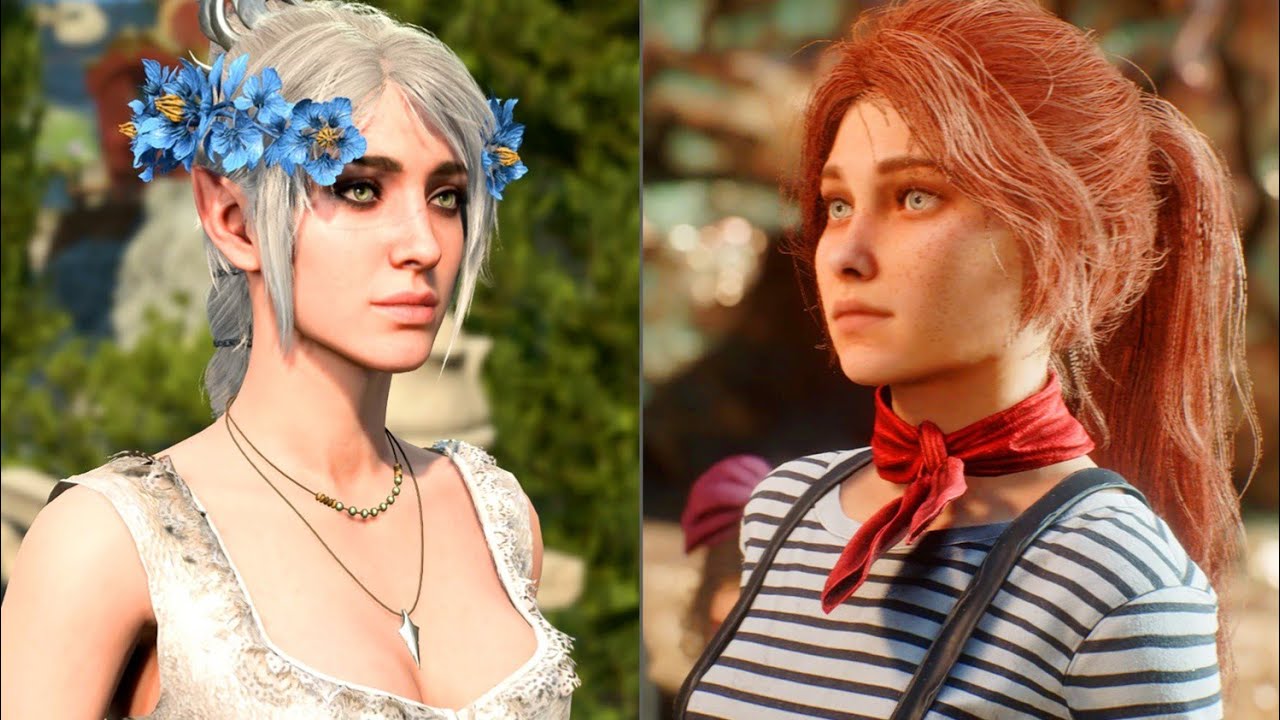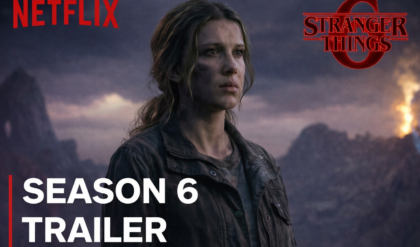Clair Obscur: Expedition 33, developed by Sandfall Interactive, has taken the RPG world by storm since its April 2025 release, earning critical acclaim for its Belle Époque-inspired world, innovative turn-based combat, and emotionally resonant story. At the heart of this narrative is Maelle, a 16-year-old orphaned swordswoman voiced by Jennifer English, whose performance has drawn inevitable comparisons to her iconic role as Shadowheart in Baldur’s Gate 3. Fans on platforms like X have dubbed Maelle “the more adorable version of Shadowheart,” citing similarities in voice, emotional depth, and narrative role, but also noting Maelle’s youthful charm and distinct personality. This article explores whether Maelle is merely a rehash of Shadowheart or a unique character in her own right, delving into their similarities, differences, and the broader implications for RPG character design.

The Maelle-Shadowheart Connection: Why the Comparison?
The comparison between Maelle and Shadowheart stems primarily from their shared voice actress, Jennifer English, whose distinctive tone is instantly recognizable. English’s portrayal of Shadowheart in Baldur’s Gate 3 (2023) made the half-elf Cleric a fan favorite, blending vulnerability, defiance, and wit as she navigated her conflicted loyalty to the goddess Shar. In Clair Obscur: Expedition 33, English voices Maelle, a rapier-wielding teenager who joins the 33rd Expedition to defeat the Paintress, a godlike entity that annually dooms people of a specific age to dissolve into smoke. Both characters are central to their games’ narratives, with Maelle often described as the emotional core of Expedition 33, much like Shadowheart anchors Baldur’s Gate 3’s companion dynamics.
Posts on X highlight the overlap: one user exclaimed, “Maelle’s voice sounded familiar OF COURSE IT DOES IS THE SAME VA AS SHADOWHEART 🥺,” while another noted, “Imagine if Expedition 33 meets Shadowheart and they’re just like ‘why does she sound like Maelle?’”. Beyond voice, both characters share thematic similarities. Shadowheart, abducted as a child and indoctrinated by Sharrans, grapples with her identity and faith. Maelle, orphaned at three and raised in the city of Lumiere, feels alienated and seeks freedom through the Expedition, hoping to discover her place in the world. Both are layered, introspective women whose personal journeys resonate deeply with players.
The comparison gained traction due to English’s standout performance. Aliona Baranova, a Baldur’s Gate 3 performance director and English’s partner, praised Maelle’s “depth of emotion, childlike playfulness & hope,” even suggesting it surpasses her Shadowheart role. Fans agree, with one X post calling Maelle’s interpretation “destroying” in its emotional impact compared to Shadowheart. Yet, some critics argue Maelle feels like a “Shadowheart clone,” accusing Sandfall of leaning too heavily on English’s established persona to replicate Baldur’s Gate 3’s success. This debate raises questions about voice acting, character originality, and fan expectations in modern RPGs.
Maelle: A Distinct Character with Unique Flavors
Despite surface similarities, Maelle is far from a Shadowheart carbon copy. Her background, personality, and role in Clair Obscur: Expedition 33 carve out a distinct identity. Maelle is a 16-year-old foster sister to Gustave, the Expedition’s leader, voiced by Charlie Cox. Orphaned and never feeling at home in Lumiere, she joins the Expedition not to save the city but to escape it, seeking self-discovery in a world ravaged by the Paintress’s curse. This youthful ambition contrasts with Shadowheart’s more guarded, trauma-driven arc. Where Shadowheart’s story revolves around unraveling her manipulated past and choosing between Shar and Selûne, Maelle’s is about forging a future, embracing hope despite the Expedition’s grim odds.
Maelle’s personality is notably lighter and more playful. English infuses her with a “sardonic wit” and teenage energy, evident in her banter with Gustave or her excitement over alternative outfits, which appeal to fashion-minded players. Shadowheart, by contrast, is more reserved, her humor dry and her demeanor shaped by years of Sharran conditioning. Maelle’s youthfulness shines in her combat style, too. Wielding a rapier, she shifts between stances—Offensive, Defensive, and Virtuoso—allowing her to deal massive damage at the cost of vulnerability. This dynamic, high-risk playstyle mirrors her impulsive, freedom-seeking nature, unlike Shadowheart’s supportive Cleric role, which emphasizes healing and crowd control in Baldur’s Gate 3’s D&D-based combat.
Narratively, Maelle’s role as the Expedition’s emotional anchor differs from Shadowheart’s. While Shadowheart is one of several companions vying for the player’s attention, Maelle often feels like the true protagonist, her coming-of-age story intertwining with the group’s mission to stop the Paintress. Her interactions, from teasing Gustave to grappling with visions of loss, evoke a raw, youthful perspective that sets her apart. English’s ability to make Maelle sound convincingly teenage, despite her recognizable voice, has been widely praised, with one review noting, “Somehow, you’re really listening to a teenager”.
Shadowheart: The Iconic Predecessor
Shadowheart’s appeal lies in her complexity. Her arc in Baldur’s Gate 3 spans betrayal, redemption, and romance, with players guiding her through choices that reshape her faith and identity. English’s performance captures Shadowheart’s duality—devout yet doubting, loyal yet rebellious—making her a standout in a cast of memorable companions. Her romance, often cited as a highlight, adds intimacy to her story, a feature absent in Clair Obscur, where Maelle’s relationships are familial or platonic. Shadowheart’s combat utility, rooted in D&D’s Cleric class, contrasts with Maelle’s DPS-focused rapier mechanics, reflecting their differing roles in their respective games.
The Baldur’s Gate 3 fanbase’s attachment to Shadowheart amplifies the Maelle comparison. Her voice became synonymous with emotional depth, leading fans to hear echoes of her in Maelle. Yet, this familiarity is a double-edged sword. While it draws Baldur’s Gate 3 fans to Clair Obscur—evidenced by mods like one replacing Maelle’s hair with Shadowheart’s—it risks overshadowing Maelle’s originality. Some X users express mixed feelings, with one noting, “Can’t unsee Shadowheart whenever Maelle speaks”, suggesting English’s iconic role creates an inescapable lens.
The Role of Voice Acting in Character Perception
Jennifer English’s involvement in both games is a key factor in the debate. Her performances in Baldur’s Gate 3, Elden Ring (as Latenna), and now Clair Obscur have led fans to joke that “everything she’s in turns to gold”. Her request for an easy “Story Mode” in Clair Obscur, dubbed the “Jennifer English Memorial Mode” by co-star Ben Starr, underscores her influence, making the game more accessible and broadening its appeal. This mode, with forgiving dodge and parry windows, caters to narrative-focused players, much like Baldur’s Gate 3’s flexible difficulty settings.
However, English’s recognizable voice raises questions about typecasting in voice acting. Unlike actors like Andy Serkis, who voices Renoir in Clair Obscur with chameleonic versatility, English’s distinct tone links Maelle and Shadowheart, even if their personalities differ. This has sparked debate about whether Sandfall intentionally cast English to capitalize on Shadowheart’s popularity or if her blind audition, as confirmed by director Guillaume Broche, was purely merit-based. Either way, her performance elevates Maelle, with reviews praising her ability to convey “youthful hopefulness” and emotional range.
Is Maelle a Copycat or a New Icon?
The “Shadowheart 2.0” critique overlooks key differences. Maelle’s story is linear, focused on a 30-hour campaign with a definitive arc, unlike Baldur’s Gate 3’s sprawling, choice-driven epic. Her combat, blending turn-based strategy with Soulslike dodging, feels snappy and cinematic, distinct from Baldur’s Gate 3’s D&D-inspired mechanics. Thematically, Maelle’s quest for freedom and identity is more forward-looking than Shadowheart’s reckoning with a manipulated past. While Shadowheart’s romance and moral ambiguity cater to CRPG fans, Maelle’s platonic bonds and hopeful outlook align with JRPG sensibilities, drawing comparisons to Persona and Nier.
Critics of the comparison argue it’s reductive. David Gaider, former Dragon Age writer, called Clair Obscur “kind of to JRPGs what Baldur’s Gate 3 was to CRPGs,” praising its polished storytelling and combat. He and others suggest both games succeed by targeting core audiences while expanding appeal, not by recycling characters. Maelle’s unique stances, Pictos (buffs), and narrative role as a hopeful outsider set her apart, even if English’s voice invites nostalgia.
Conclusion: A Familiar Voice, a Fresh Heroine
Maelle is not Shadowheart 2.0, but the comparison is understandable. Jennifer English’s unforgettable voice and emotional delivery link the two, and their shared themes of identity and struggle resonate similarly. Yet, Maelle’s youthful energy, distinct combat style, and role in Clair Obscur’s concise, JRPG-inspired narrative make her a fresh addition to the RPG pantheon. The debate reflects fans’ love for both characters and the power of voice acting to shape perceptions. As Clair Obscur continues to shine—selling over 1 million copies in three days and earning a 10/10 from Edge Magazine—Maelle stands as proof that familiarity can coexist with innovation, captivating players in her own right.





